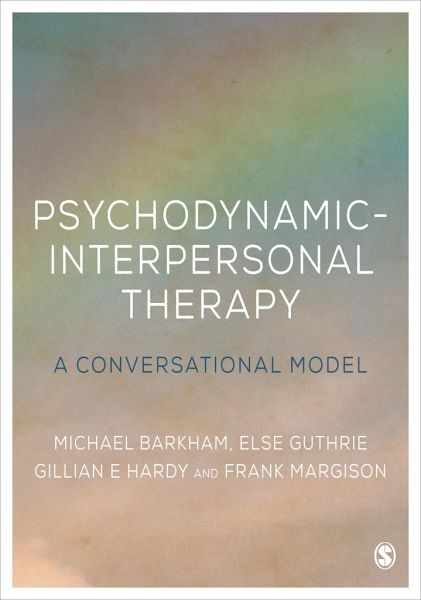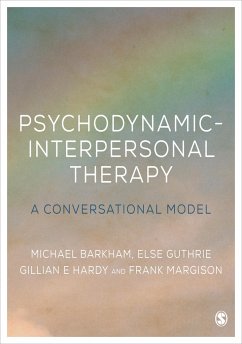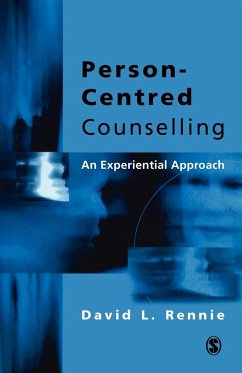
Psychodynamic-Interpersonal Therapy
A Conversational Model
Herausgegeben: Barkham, Michael; Guthrie, Else; Hardy, Gillian E.; Margison, Frank
Versandkostenfrei!
Versandfertig in 6-10 Tagen
33,99 €
inkl. MwSt.

PAYBACK Punkte
17 °P sammeln!
This book presents for the first time, a practical manual for psychodynamic-interpersonal therapy. Drawing on forty years of research, teaching and practice, its expert authors guide you through the conversational model s theory, skills and implications for practice.Part I sets out the model s underlying theory and outlines the evidence for its efficacy with client groups.Part II guides you through clinical skills of the model, from foundational to advanced.Part III offers practical guidance on implementing the approach within a range of settings, and for developing effective practice through ...
This book presents for the first time, a practical manual for psychodynamic-interpersonal therapy. Drawing on forty years of research, teaching and practice, its expert authors guide you through the conversational model s theory, skills and implications for practice.
Part I sets out the model s underlying theory and outlines the evidence for its efficacy with client groups.
Part II guides you through clinical skills of the model, from foundational to advanced.
Part III offers practical guidance on implementing the approach within a range of settings, and for developing effective practice through reflection and supervision.
Part I sets out the model s underlying theory and outlines the evidence for its efficacy with client groups.
Part II guides you through clinical skills of the model, from foundational to advanced.
Part III offers practical guidance on implementing the approach within a range of settings, and for developing effective practice through reflection and supervision.














